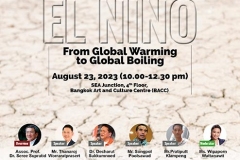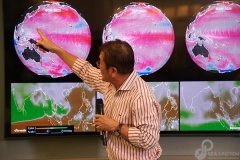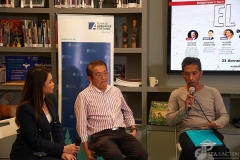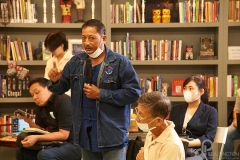In early July, the World Meteorological Organisation issued a warning saying El Nino had developed in the tropical Pacific for the first time in seven years, setting the stage for a likely surge in global temperatures and disruptive weather and climate patterns.
The month of July became the hottest July and the hottest month on record, according to the WMO.
There is a 98% likelihood that at least one of the next five years, and the five-year period as a whole, will be warmest on record, beating the record set in 2016 when there was an exceptionally strong El Nino. And there is a 66% likelihood that the annual average near-surface global temperature between 2023 and 2027 will temporarily be more than 1.5°C above pre-industrial levels for at least one year, according to the organization.
The critical questions are; how worsened could it be when El Nino has appeared? and how do people well prepare themselves to cope with the situation both short and long term?
The Dialogue Forum explored this challenge at Dialogue Forum 2 l Year 4: El Nino, from Global Warming to Global Boiling on August 23, 2023, 10 am-12.30 pm at SEA-Junction, BACC’s building (4th Floor). The conversation consisted of 5 speakers, including Assoc. Prof. Dr. Seree Supratid, Mr. Thanaroj Worraratprasert, Dr. Decharat Sukkumnoed, Mr. Songpol Poolsawad, Mr. Pratiputt Klampeng and moderated by Ms. Wipaporn Wattanawit.
Photo credit: Bangkok Tribune News























